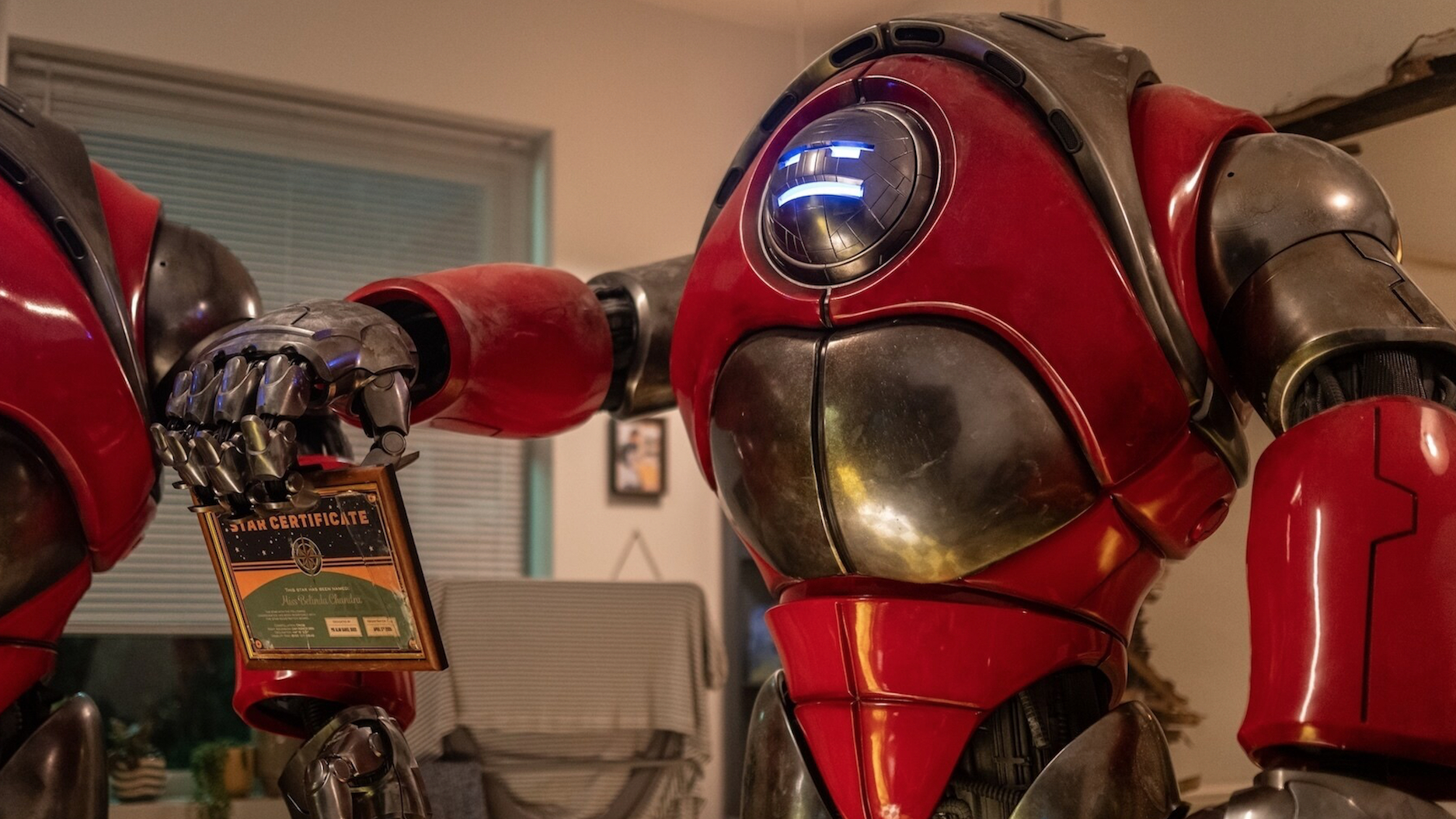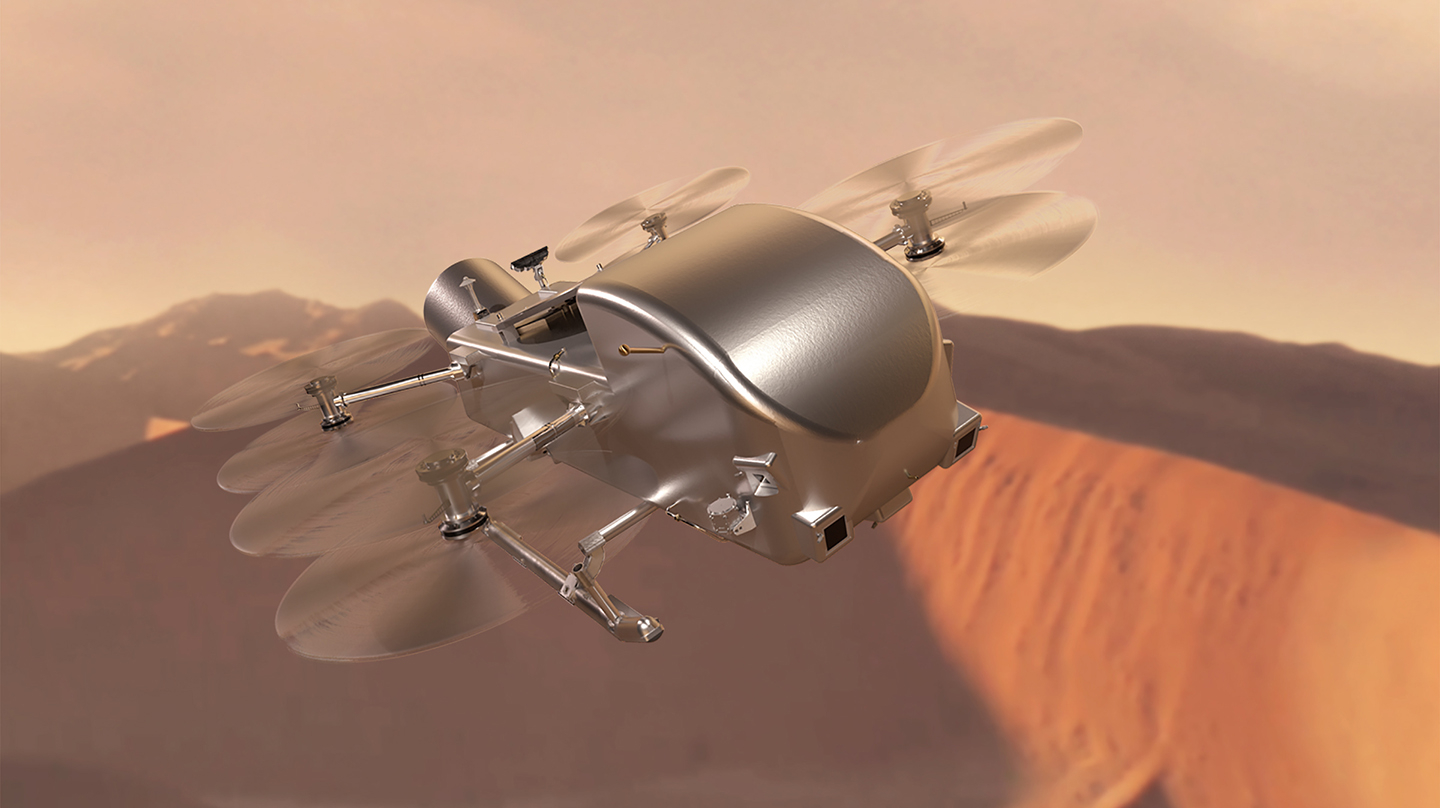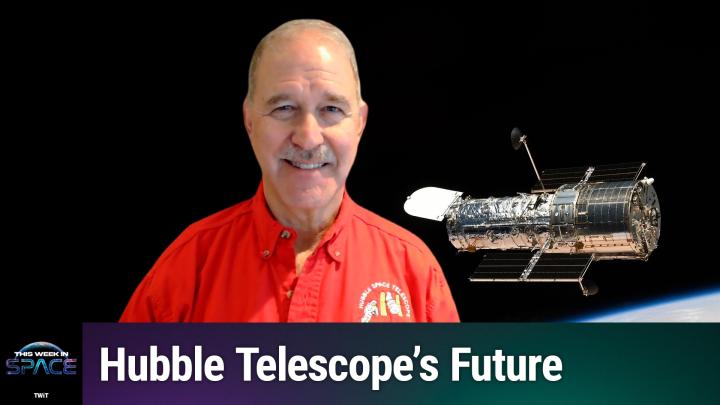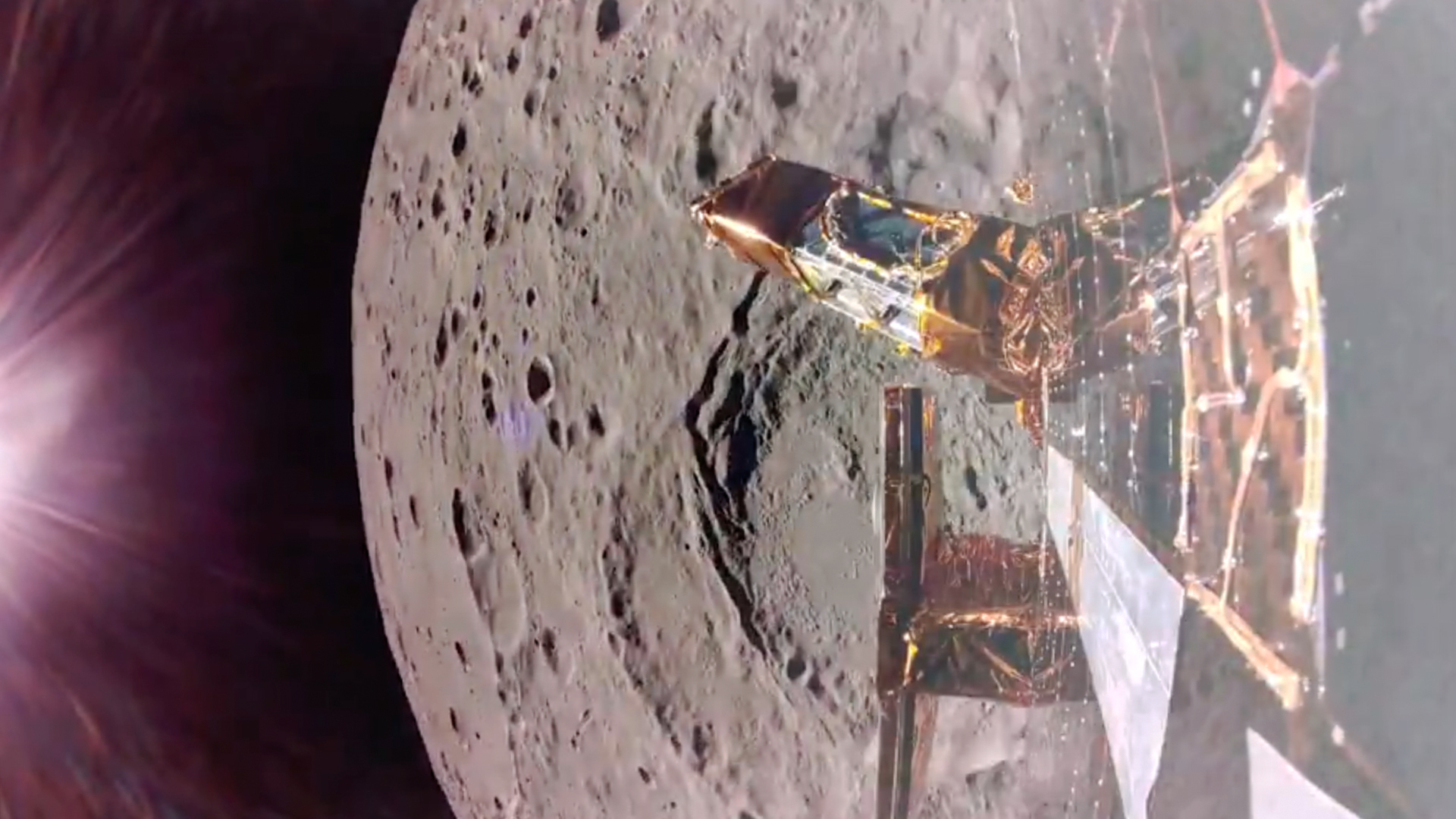Space 220 at Disney's Epcot serves up more space fact trading cards
Now in their second edition, the first series of Mercury, Venus and Earth trading cards were retired in September.

Diners enjoying the fare aboard the Centauri space station can now take home a souvenir that dips even further into the solar system.
The Space 220 restaurant, located "above" the Mission: SPACE pavilion at Walt Disney World's EPCOT in Florida, offers its guests an out-of-this-world menu paired with an astronaut's-eye view of Earth rotating below. As part of the cosmic experience, those ordering any zero proof (non-alcoholic) cocktail or children's meal receive a limited edition pack of trading cards that feature trivia, facts and illustrations about space exploration, food in space and the "sky-high innovations" at Space 220.
The exclusive cards — they are only available at the restaurant — are organized into planet-named series with six cards per set. Randomly inserted into the five-card packs, the sixth card in each series is a rare "Tech-Specs"-themed card that is stamped with blue foil ink and is themed to a current or future space technology.
Related: Take a sneak peek at Disney's Space 220 restaurant at EPCOT
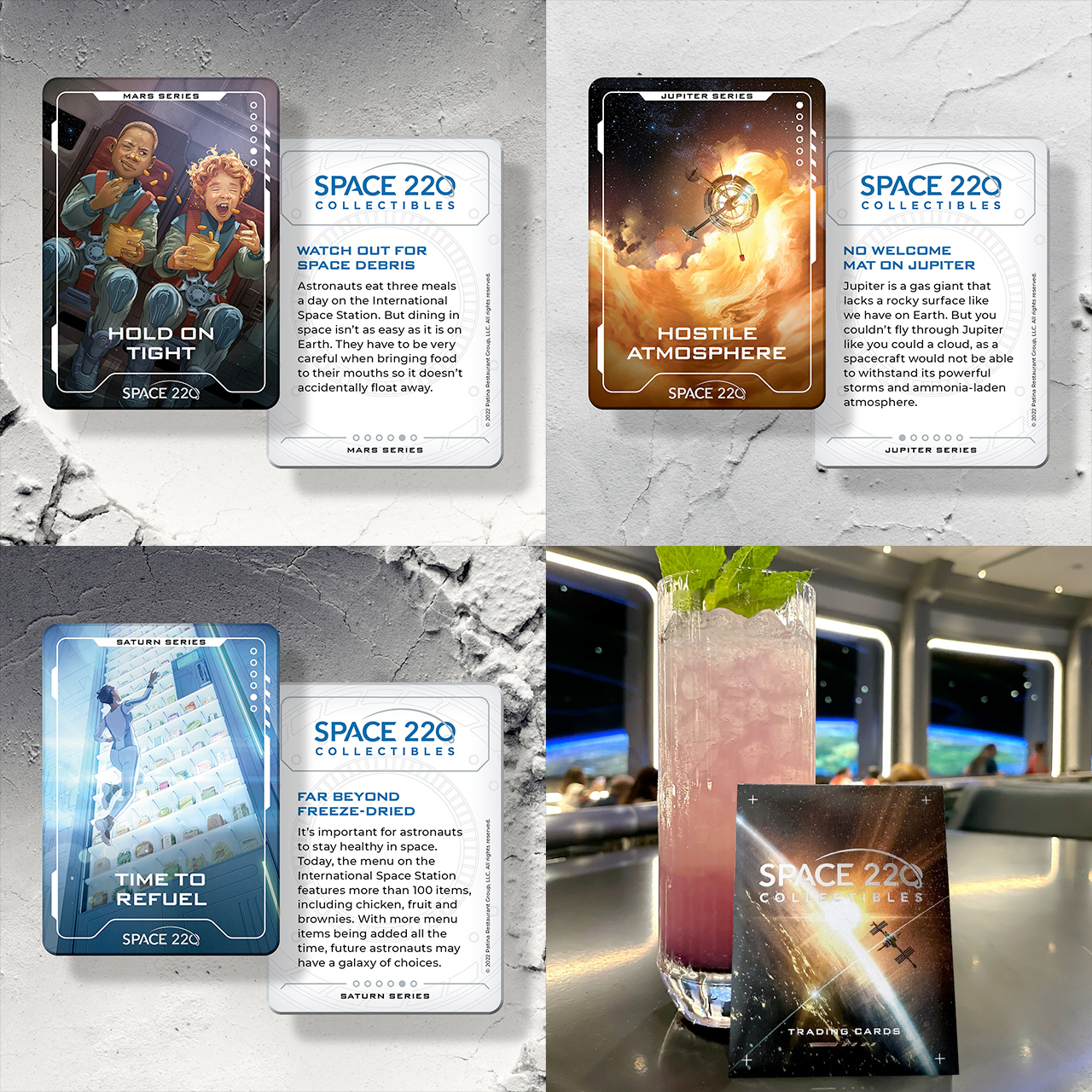
From September 2021, when Space 220 opened, the packs included cards in the Mercury, Venus and Earth series. Those first cards are now retired and a second variety is available with three new planet series.
"Space 220 is debuting three new collectible trading cards — Saturn, Jupiter and Mars [honoring] the restaurant's one-year anniversary at EPCOT!" Disney Parks recently announced on its social media channels.
Like the originals, the new Space 220 cards feature artwork developed specifically for the restaurant. Among the 18 designs now being distributed are:
Get the Space.com Newsletter
Breaking space news, the latest updates on rocket launches, skywatching events and more!
- "Hold on Tight" — the fifth card in the Mars series addresses the challenges of eating on the International Space Station (ISS). "[Astronauts] have to be very careful when bringing food to their mouths so it doesn't accidentally float away."
- "Hostile Atmosphere" — the first card in the Jupiter series warns there is "no welcome mat" on the gas giant planet. "You couldn't fly through Jupiter like you could a cloud, as a spacecraft would not be able to withstand its powerful storms and ammonia-laden atmosphere."
- "Time to Refuel" — the fifth card in the Saturn series focuses on the variety of food on the ISS. "Today, the menu on the International Space Station features more than 100 items, including chicken, fruit and brownies. With more menu items being added all the time, future astronauts may have a galaxy of choices."
The blue foil "Tech-Specs" cards now include "Storm-Sat" (Mars), "Cargo Ship" (Jupiter) and "Working in Space" (Saturn).
Current packs can be distinguished from the retired packs even before opening them. Both feature the same artwork of the Centauri space station in orbit over Earth, but the newer packs add the bright Sun rising above the planet's horizon.
The Space 220 restaurant is run by the Patina Restaurant Group, which is owned by Delaware North, the same company that operates NASA's Kennedy Space Center Visitor Complex.
Follow collectSPACE.com on Facebook and on Twitter at @collectSPACE. Copyright 2022 collectSPACE.com. All rights reserved.
Join our Space Forums to keep talking space on the latest missions, night sky and more! And if you have a news tip, correction or comment, let us know at: community@space.com.

Robert Pearlman is a space historian, journalist and the founder and editor of collectSPACE.com, a daily news publication and community devoted to space history with a particular focus on how and where space exploration intersects with pop culture. Pearlman is also a contributing writer for Space.com and co-author of "Space Stations: The Art, Science, and Reality of Working in Space” published by Smithsonian Books in 2018.In 2009, he was inducted into the U.S. Space Camp Hall of Fame in Huntsville, Alabama. In 2021, he was honored by the American Astronautical Society with the Ordway Award for Sustained Excellence in Spaceflight History. In 2023, the National Space Club Florida Committee recognized Pearlman with the Kolcum News and Communications Award for excellence in telling the space story along the Space Coast and throughout the world.

